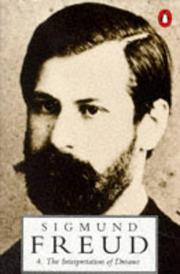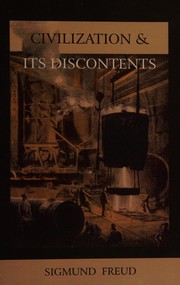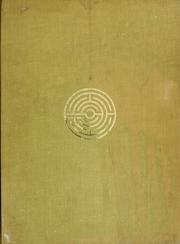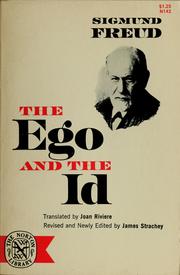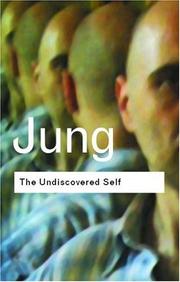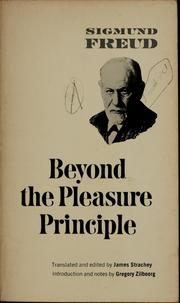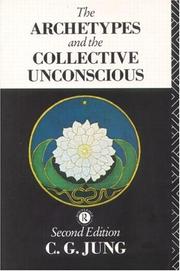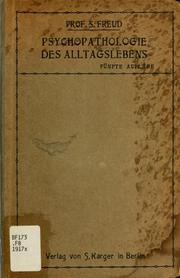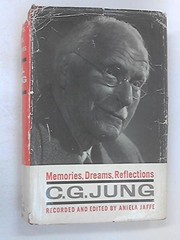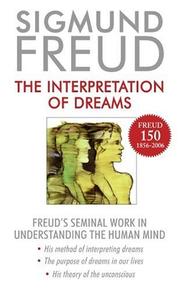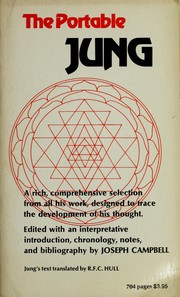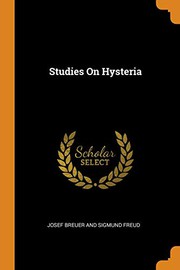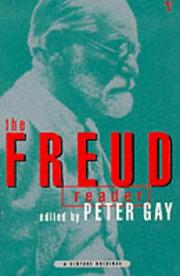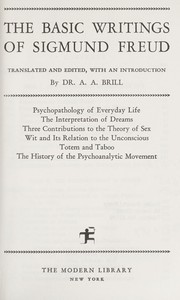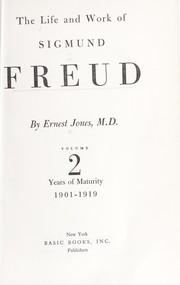Are you fascinated by the inner workings of the human mind? Dive deep into the world of psychoanalysis with these 20 captivating books. Whether you’re a psychology student, a mental health professional, or simply curious about the complexities of the human psyche, these books offer profound insights into the theories and practices of psychoanalysis. From classic works by Sigmund Freud and Carl Jung to modern interpretations of psychoanalytic concepts, this list has something for everyone. Explore the depths of the unconscious mind and unravel the mysteries of human behavior with these essential reads. Let’s embark on a journey of self-discovery and understanding through the pages of these top psychoanalysis books.
Contents
- 1 20 Best Psychoanalysis Books
- 2 The Interpretation of Dreams
- 3 Civilization and Its Discontents
- 4 Man and His Symbols
- 5 The Ego and the Id
- 6 The Undiscovered Self
- 7 Beyond the Pleasure Principle
- 8 The Archetypes and the Collective Unconscious
- 9 The Psychopathology of Everyday Life
- 10 Memories, Dreams, Reflections
- 11 Totem and Taboo
- 12 The Red Book
- 13 On Dreams
- 14 The Portable Jung
- 15 Studies on Hysteria
- 16 The Freud Reader
- 17 The Basic Writings of Sigmund Freud
- 18 The Life and Work of Sigmund Freud
- 19 The Future of an Illusion
- 20 The Collected Works of C.G. Jung: Complete Digital Edition
- 21 The Psychology of the Unconscious
- 22 Final Thoughts on Best Psychoanalysis Books
- 23
20 Best Psychoanalysis Books
The Interpretation of Dreams
by Sigmund Freud
The Interpretation of Dreams is a groundbreaking book on psychoanalysis written by Sigmund Freud, the father of modern psychology. In this influential work, Freud delves into the complex realm of the human subconscious, exploring the significance of dreams and their connection to our innermost desires and fears. Through detailed case studies and in-depth analysis, Freud offers a compelling interpretation of the symbolic language of dreams, revealing how they can provide valuable insights into our psyche.
Published in 1899, this psychoanalysis book revolutionized the way we understand the human mind, paving the way for a deeper exploration of the unconscious and the role it plays in shaping our thoughts and behaviors. Freud’s meticulous examination of dreams and their hidden meanings continues to captivate readers and scholars alike, making The Interpretation of Dreams a timeless classic in the field of psychology.
Civilization and Its Discontents
by Sigmund Freud
Civilization and Its Discontents, written by Sigmund Freud, is a thought-provoking book about the fundamental tensions between individual desires and the constraints of society. In this influential work of psychoanalysis, Freud delves into the complex relationship between the individual’s instinctual drives and the demands of civilization, exploring the ways in which these conflicting forces shape human behavior and mental well-being.
Freud’s insightful exploration of human nature and society offers a compelling analysis of the psychological conflicts that arise from the constraints of civilization, shedding light on the inherent struggles and discontent that individuals experience within societal structures. Through his keen observations and astute analysis, Freud provides readers with a deeper understanding of the internal conflicts and tensions that influence human behavior and the complexities of the human psyche.
Overall, Civilization and Its Discontents is a timeless and thought-provoking psychoanalytic work that continues to captivate readers with its profound insights into the human condition.
Man and His Symbols
by Carl Jung
Man and His Symbols is a captivating book on psychoanalysis written by the renowned psychologist Carl Jung. This insightful and thought-provoking work delves into the depths of the human psyche, exploring the significance of symbols and their influence on our unconscious mind. Jung and his associates examine the universal symbols that appear in dreams, myths, and art, shedding light on their profound meaning and their impact on our lives.
Through engaging and accessible language, Jung presents his groundbreaking theories on the collective unconscious and the archetypes that shape our thoughts, emotions, and behaviors. He demonstrates how understanding these symbols can lead to self-discovery, personal growth, and a deeper connection to the world around us.
Man and His Symbols is a must-read for anyone interested in delving into the complexities of the human mind and gaining a deeper understanding of the subconscious forces that drive our lives. This psychoanalysis book offers valuable insights and practical wisdom that can enrich our journey towards self-awareness and fulfillment.
The Ego and the Id
by Sigmund Freud
The Ego and the Id, written by Sigmund Freud, is a classic book on psychoanalysis that delves into the intricate workings of the human mind. In this thought-provoking exploration, Freud introduces the three parts of the psyche: the id, the ego, and the superego. He explains how these elements interact and influence our thoughts, emotions, and behaviors. Freud’s groundbreaking theories shed light on the complexities of human nature, offering invaluable insights into the unconscious mind and the inner conflicts that shape our experiences.
Through vivid examples and compelling case studies, Freud invites readers to embark on a journey of self-discovery, unraveling the hidden forces that drive our desires and fears. The Ego and the Id is a captivating psychoanalysis book that continues to captivate readers with its profound exploration of the human psyche. This timeless work remains an essential resource for anyone seeking a deeper understanding of the complexities of the mind and the intricacies of human behavior.
The Undiscovered Self
by Carl Jung
The Undiscovered Self by Carl Jung is a fascinating book on psychoanalysis that delves into the depths of the human psyche. In this thought-provoking work, Jung explores the concept of the ‘self’ and the importance of understanding and embracing our unconscious aspects. With his profound insights, Jung discusses the complexities of the human mind, the impact of mass movements on individual identity, and the dangers of blindly conforming to societal norms. Through his exploration of the collective unconscious, archetypes, and the shadow self, Jung offers a compelling perspective on the human experience and the quest for self-discovery.
This psychoanalysis book is a compelling and enlightening read for anyone seeking a deeper understanding of the human psyche and the forces that shape our individual and collective identities. Jung’s profound insights and timeless wisdom make The Undiscovered Self a must-read for those interested in psychology, personal growth, and the intricacies of the human mind.
Beyond the Pleasure Principle
by Sigmund Freud
Beyond the Pleasure Principle is a groundbreaking book on psychoanalysis by Sigmund Freud, the father of modern psychology. In this influential work, Freud introduces the concept of the death drive, or “Thanatos,” which contends that humans have an innate instinct towards self-destruction and aggression. He delves into the complexities of the human psyche, exploring the ways in which we are driven by forces beyond our conscious awareness.
Freud’s exploration of the death drive and its relationship to the pleasure principle revolutionized the field of psychology, sparking intense debate and further inquiry into the nature of human motivation and behavior. Beyond the Pleasure Principle is a thought-provoking and essential read for anyone interested in delving deeper into the complexities of the human mind. Whether you’re a student of psychology or simply curious about the inner workings of the human psyche, this psychoanalysis book offers profound insights that continue to shape our understanding of human behavior.
The Archetypes and the Collective Unconscious
by Carl Jung
The Archetypes and the Collective Unconscious by Carl Jung is a groundbreaking book on psychoanalysis that delves into the depths of the human psyche. Jung explores the concept of archetypes, which are universal symbols and patterns that are present in the collective unconscious of all human beings. He argues that these archetypes are inherited and shape our thoughts, feelings, and behaviors.
Through a series of case studies and in-depth analysis, Jung demonstrates how archetypes manifest in dreams, myths, and cultural symbols. He also explores the idea of the collective unconscious, the shared reservoir of human experience that goes beyond individual consciousness. This psychoanalysis book provides a fascinating insight into the hidden forces that influence our lives and offers a new perspective on the mysteries of the human mind.
With its rich exploration of symbolism, mythology, and the depths of the human psyche, The Archetypes and the Collective Unconscious is a must-read for anyone interested in understanding the complexities of human behavior and the mysteries of the mind.
The Psychopathology of Everyday Life
by Sigmund Freud
The Psychopathology of Everyday Life, written by Sigmund Freud, is a fascinating book on psychoanalysis that delves into the hidden meanings behind everyday occurrences. Freud explores how slips of the tongue, forgetting a name, and other seemingly minor mistakes can reveal deeper psychological truths. He argues that these lapses are not random, but are instead a manifestation of our unconscious desires and conflicts.
Freud’s engaging writing style and compelling case studies make this book about psychoanalysis a captivating read for anyone interested in understanding the complexities of the human mind. Through his exploration of everyday experiences, Freud provides insights into the workings of the unconscious and the ways in which it influences our behavior and thoughts.
Whether you are new to the world of psychology or a seasoned psychoanalysis book enthusiast, The Psychopathology of Everyday Life offers a thought-provoking journey into the depths of the human psyche, shedding light on the subtle ways in which our innermost thoughts and feelings shape our daily lives.
Memories, Dreams, Reflections
by Carl Jung
Memories, Dreams, Reflections is a captivating autobiography of the renowned psychologist Carl Jung. This remarkable book on psychoanalysis takes readers on a journey through Jung’s life, exploring his innermost thoughts, dreams, and memories. Through vivid storytelling, Jung delves into his personal experiences, from his childhood to his groundbreaking work in the field of psychology.
With a unique blend of introspection and scholarly insight, this book about psychoanalysis offers a deep understanding of Jung’s theories and concepts, such as the collective unconscious, archetypes, and the significance of dreams. Jung’s reflections on his own psychological development provide valuable insights into the human psyche and the nature of the unconscious mind.
Memories, Dreams, Reflections is not just a psychoanalysis book; it is a profound exploration of the human experience, offering wisdom and inspiration for anyone interested in psychology, spirituality, and personal growth. With its evocative prose and profound revelations, this book is a must-read for anyone seeking a deeper understanding of the complexities of the human mind.
Totem and Taboo
by Sigmund Freud
Totem and Taboo is a groundbreaking book on psychoanalysis by Sigmund Freud, the father of modern psychology. In this fascinating work, Freud delves into the origins of civilization and the development of human society through the lens of psychoanalytic theory.
Freud explores the primal instincts and unconscious desires that drive human behavior, as well as the impact of social and cultural forces on the human psyche. He introduces the concepts of totemism and taboo, examining their role in shaping the structure of early societies and the evolution of human consciousness.
This psychoanalysis book offers a captivating exploration of the human mind and the complex interplay between individual psychology and collective culture. Freud’s thought-provoking theories and keen insights into the human condition make Totem and Taboo a must-read for anyone interested in delving into the depths of the human psyche and the origins of civilization.
The Red Book
by Carl Jung
The Red Book by Carl Jung is a groundbreaking book on psychoanalysis, offering a rare glimpse into the innermost thoughts and visions of one of the most influential figures in psychology. This beautifully illustrated and meticulously preserved manuscript takes readers on a journey through Jung’s personal exploration of the unconscious mind, blending elements of art, philosophy, and spirituality. The Red Book is a captivating and deeply introspective work that delves into the depths of the human psyche, offering profound insights into the complexities of the human experience. With its rich symbolism and thought-provoking musings, this psychoanalysis book challenges readers to contemplate the nature of the self and the mysteries of the unconscious. It is a must-read for anyone interested in delving into the depths of the mind and exploring the complexities of the human experience.
On Dreams
by Sigmund Freud
On Dreams by Sigmund Freud is a groundbreaking book on psychoanalysis, delving into the mysterious world of dreams and their significance. Freud, the father of psychoanalysis, explores the unconscious mind and its manifestations in our dreams, shedding light on the hidden meanings behind our nightly visions.
In this psychoanalysis book, Freud presents his theory of dreams as wish-fulfillment, revealing how dreams are a manifestation of our deepest desires and fears. He dissects the symbolism and imagery present in dreams, uncovering the hidden messages that our subconscious communicates to us through the language of dreams.
On Dreams is a thought-provoking and insightful exploration of the human psyche, offering a unique perspective on the role of dreams in our mental and emotional lives. Freud’s pioneering work continues to be a cornerstone of psychoanalysis and remains a must-read for anyone interested in delving into the complexities of the human mind.
The Portable Jung
by Carl Jung
The Portable Jung is a comprehensive collection of the writings of the influential Swiss psychiatrist and psychoanalyst, Carl Jung. This book delves into the depths of the human psyche, exploring Jung’s theories on the collective unconscious, archetypes, and the importance of dreams in understanding the unconscious mind. It also delves into the concept of individuation and the integration of the conscious and unconscious aspects of the self. This seminal work provides a valuable insight into Jung’s pioneering ideas and his impact on the field of psychology.
As a book on psychoanalysis, The Portable Jung offers a rich tapestry of Jung’s thoughts and ideas, making it an essential read for anyone interested in delving into the realms of the human mind. Whether you are a student of psychology, a therapist, or simply someone curious about the workings of the psyche, this psychoanalysis book offers a fascinating journey into the complexities of the human experience.
Studies on Hysteria
by Sigmund Freud and Josef Breuer
Studies on Hysteria is a groundbreaking book on psychoanalysis written by Sigmund Freud and Josef Breuer. This influential work delves into the case studies of several patients suffering from hysteria, providing a deep understanding of the psychological and emotional complexities of this condition. Freud and Breuer’s collaborative effort explores the connection between their patients’ symptoms and the underlying emotional traumas they have experienced.
The book about psychoanalysis introduces the concept of catharsis, the release of repressed emotions through therapeutic conversation, as a key element in the treatment of hysteria. Freud and Breuer’s insightful analysis sheds light on the significance of early life experiences and the unconscious mind in shaping one’s psychological well-being. Studies on Hysteria not only laid the foundation for the development of psychoanalysis but also revolutionized the understanding of mental illness and treatment approaches.
Whether you are a student of psychology, a mental health professional, or simply interested in delving into the complexities of the human mind, this psychoanalysis book is a must-read for anyone seeking a deeper understanding of the intricacies of the human psyche.
The Freud Reader
by Sigmund Freud
The Freud Reader is a fascinating collection of Sigmund Freud’s most influential and groundbreaking works. As a renowned pioneer in the field of psychoanalysis, Freud delves into the complexities of the human mind, exploring topics such as dreams, sexuality, and the unconscious. This book offers a comprehensive overview of Freud’s theories and insights, providing readers with a deep understanding of his revolutionary ideas.
Through a series of carefully curated essays and case studies, The Freud Reader offers a compelling look into the inner workings of the human psyche. Readers will gain valuable insight into Freud’s concepts of the id, ego, and superego, as well as his theories on the Oedipus complex and the interpretation of dreams. Whether you are a student of psychology, a mental health professional, or simply curious about the intricacies of the human mind, this book about psychoanalysis is a must-read. The Freud Reader is a timeless classic that continues to shape our understanding of the complexities of human behavior.
The Basic Writings of Sigmund Freud
by Sigmund Freud
The Basic Writings of Sigmund Freud is a foundational text in the field of psychoanalysis. This seminal work by Sigmund Freud, a pioneer in the study of the human mind, delves into the complexities of the unconscious, dreams, and the development of personality. Freud’s exploration of human behavior and the underlying motives behind it has had a profound influence on the fields of psychology, psychiatry, and beyond.
In this comprehensive collection, readers will find some of Freud’s most influential and enduring essays, including “The Interpretation of Dreams” and “The Ego and the Id.” These writings offer a compelling insight into Freud’s theories on the unconscious mind, the role of sexuality in human development, and the dynamics of the human psyche.
Whether you are a seasoned scholar or a newcomer to the world of psychoanalysis, this book about psychoanalysis is an essential read for anyone seeking a deeper understanding of the inner workings of the human mind. Freud’s groundbreaking ideas continue to shape our understanding of the human experience, making this psychoanalysis book a timeless and indispensable resource.
The Life and Work of Sigmund Freud
by Ernest Jones
The Life and Work of Sigmund Freud by Ernest Jones is a captivating book on psychoanalysis that delves into the fascinating life and groundbreaking work of the renowned psychiatrist. Jones, a close associate of Freud, provides a detailed account of the father of psychoanalysis, from his childhood in Vienna to his revolutionary theories on the human mind. The book offers a compelling exploration of Freud’s development of psychoanalytic techniques, his influential case studies, and his enduring impact on the field of psychology.
Through meticulous research and personal insights, Jones paints a vivid portrait of Freud’s struggles and triumphs, offering readers a deeper understanding of the man behind the iconic theories. This psychoanalysis book is essential reading for anyone interested in the history of psychology and the evolution of psychoanalytic thought. Jones’ masterful storytelling and profound knowledge of his subject make The Life and Work of Sigmund Freud an engrossing and enlightening book about psychoanalysis.
The Future of an Illusion
by Sigmund Freud
The Future of an Illusion by Sigmund Freud is a thought-provoking book on psychoanalysis that delves into the concept of religion as a form of collective neurosis. Freud, known for his groundbreaking work in the field of psychology, challenges the idea of religion as a source of comfort and solace, instead viewing it as a coping mechanism for the fear of the unknown and the inevitability of death.
Freud’s psychoanalysis book explores the origins of religious beliefs and rituals, shedding light on the underlying psychological motivations behind them. He argues that religion, though it may provide a sense of security and meaning, ultimately stems from human desires and fears.
With his characteristic insight and depth, Freud presents a compelling argument that forces readers to reexamine their beliefs and consider the implications of his analysis. The Future of an Illusion is a must-read for anyone interested in delving into the psychological underpinnings of religion and the human mind.
The Collected Works of C.G. Jung: Complete Digital Edition
by Carl Jung
The Collected Works of C.G. Jung: Complete Digital Edition is a comprehensive collection of the groundbreaking writings of Carl Jung, a prolific and influential figure in the field of psychology. This digital edition is a treasure trove for anyone interested in delving into the depths of the human psyche and exploring Jung’s theories and insights. It offers a fascinating journey through Jung’s pioneering work, encompassing topics such as dream analysis, archetypes, the collective unconscious, and the process of individuation. This digital edition provides a convenient and accessible way to immerse oneself in the wisdom of Jung, offering a rich resource for scholars, students, and anyone curious about the complexities of the mind. Whether you are a seasoned practitioner in the realm of psychology or simply intrigued by the mysteries of the human soul, this digital collection is a must-have for anyone seeking to expand their understanding of the human experience.
The Psychology of the Unconscious
by Carl Jung
The Psychology of the Unconscious is an influential book on psychoanalysis by Carl Jung, a renowned Swiss psychiatrist and psychoanalyst. In this groundbreaking work, Jung delves into the depths of the human psyche, exploring the unconscious mind and its profound impact on our thoughts, emotions, and behavior. He introduces the concept of the collective unconscious, a reservoir of shared experiences and archetypes that shape our individual and collective consciousness.
Jung’s exploration of dreams, symbols, and the process of individuation offers readers a fascinating insight into the complexities of the human mind. He also examines the significance of mythology, religion, and cultural symbolism in understanding the unconscious forces at play in our lives. With his compelling writing style and profound insights, Jung invites readers to embark on a journey of self-discovery and inner transformation.
Whether you’re a psychology enthusiast, a student of human behavior, or simply curious about the mysteries of the mind, this psychoanalysis book is a must-read for anyone seeking a deeper understanding of the unconscious mind and its profound influence on our lives.
Final Thoughts on Best Psychoanalysis Books
In conclusion, the world of Psychoanalysis is rich and diverse, and these 20 best books about psychoanalysis offer a fascinating exploration of the human mind, behavior, and emotions. Whether you are a student, a professional, or simply curious about the subject, these books provide valuable insights and perspectives that will deepen your understanding of psychoanalysis. From classic works to contemporary perspectives, there is something for everyone in this diverse selection of books about psychoanalysis.
Which book about Psychoanalysis is best?
The best book on Psychoanalysis can vary with personal preference, but three widely recommended titles are:
- The Interpretation of Dreams by Sigmund Freud,
- Civilization and Its Discontents by Sigmund Freud,
- Man and His Symbols by Carl Jung.
Each offers valuable insights and could be a great starting point.
What are the best books to learn about Psychoanalysis?
For those looking to learn about Psychoanalysis, there is a wealth of literature that can provide a comprehensive understanding of the subject. Some of the most highly recommended books include:
- The Interpretation of Dreams by Sigmund Freud,
- Civilization and Its Discontents by Sigmund Freud,
- Man and His Symbols by Carl Jung,
- The Ego and the Id by Sigmund Freud,
- The Undiscovered Self by Carl Jung,
- Beyond the Pleasure Principle by Sigmund Freud,
- The Archetypes and the Collective Unconscious by Carl Jung,
- The Psychopathology of Everyday Life by Sigmund Freud,
- Memories, Dreams, Reflections by Carl Jung,
- Totem and Taboo by Sigmund Freud
These books offer a range of perspectives on Psychoanalysis, covering various aspects and approaches to the subject.
What are the best books about Psychoanalysis?
The best books about Psychoanalysis are:
- The Interpretation of Dreams by Sigmund Freud,
- Civilization and Its Discontents by Sigmund Freud,
- The Red Book by Carl Jung,
- On Dreams by Sigmund Freud,
- The Psychopathology of Everyday Life by Sigmund Freud,
- Beyond the Pleasure Principle by Sigmund Freud.
Each offers unique insights into the subject. While these books about Psychoanalysis are highly regarded, it’s important to note that any list of ‘best’ books is subjective and reflects a range of opinions.
What are the best Psychoanalysis books of all time?
Choosing the best Psychoanalysis books of all time can vary depending on who you ask, but five titles that are often celebrated include
- The Interpretation of Dreams by Sigmund Freud,
- Civilization and Its Discontents by Sigmund Freud,
- The Undiscovered Self by Carl Jung,
- The Psychopathology of Everyday Life by Sigmund Freud,
- and The Red Book by Carl Jung.
Each of these books has made a significant impact in the field of Psychoanalysis and continues to be influential today.

